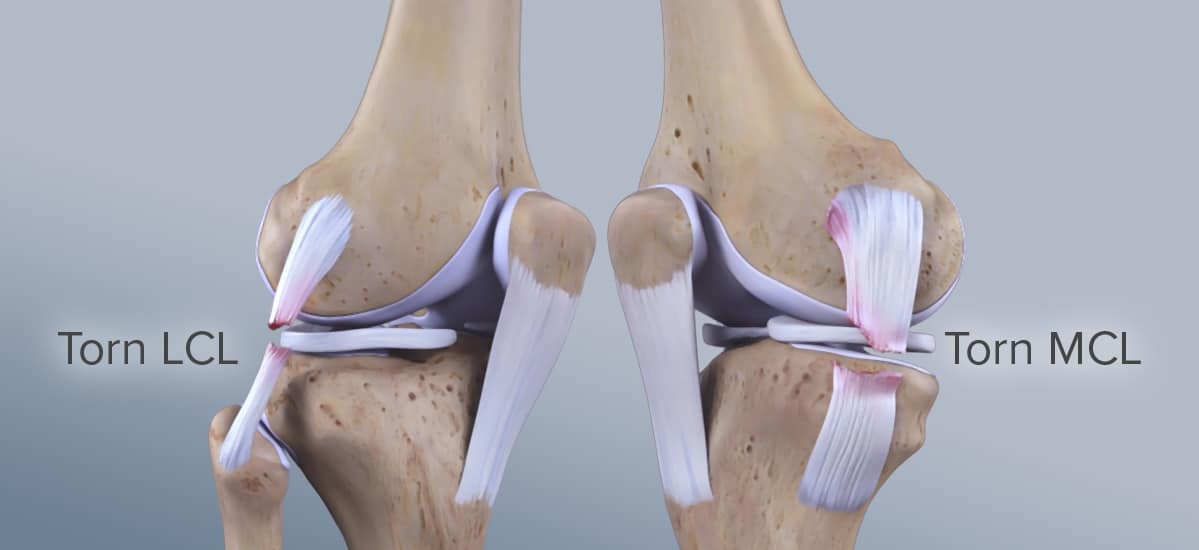If you’ve ever watched a soccer game or a football game, I’m sure you’ve heard the announcer say a player was injured and tore their ACL, MCL, or LCL when they twisted and fell on their leg.
And while most people will recover after tearing their ACL, MCL, or LCL, the road to recovery is long and challenging.
To learn more about what an ACL, MCL and LCL tear are and why they are so troublesome, dive into this article!
What is an ACL, MCL, and LCL tear?
An ACL tear is a tear of your anterior cruciate ligament which helps to stabilise your tibia from sliding too far forward on your femur.
A MCL tear or LCL tear are tears of your medial collateral ligament and lateral collateral ligament. These ligaments function to help stabilise your inner and outer knee.
What are the symptoms of an ACL, MCL, and LCL tear?
When you tear any of these ligaments, you will likely experience pain and swelling in the knee joint. If it is an MCL or LCL tear, the pain may be located on your inner or outer knee respectively.
If the tear is bad enough, you may also experience significant bruising surrounding your knee indicating you have severely torn the ligament.
What causes an ACL, MCL, and LCL tear?
ACL, MCL, and LCL tears are most commonly caused by trauma. They typically involve a mechanism in which the knee twists inward hard and fast. This is why athletes who do lots of cutting motions are at a greater risk for these ligamentous tears.
They can also occur as a result of a fall to the ground in any direction.
Potential Diagnoses
While it is possible to tear these ligaments each on their own, they will commonly be torn together (especially the ACL and MCL).
If you have not fully torn one of these ligaments, you will receive the diagnosis of a ligamentous sprain instead of a tear.
Did you know?
Did you know that if you tear your ACL it could take up to 9 to 12 months before you can return to play sports fully again?
These ligaments are particularly slow to heal and are also extremely prone to re-injury if you return to playing your sport too soon.
This is why it is critical that you seek out help from a skilled practitioner if you suspect you have injured any of these ligaments, so they can get you on the road to recovery as quickly as possible.

